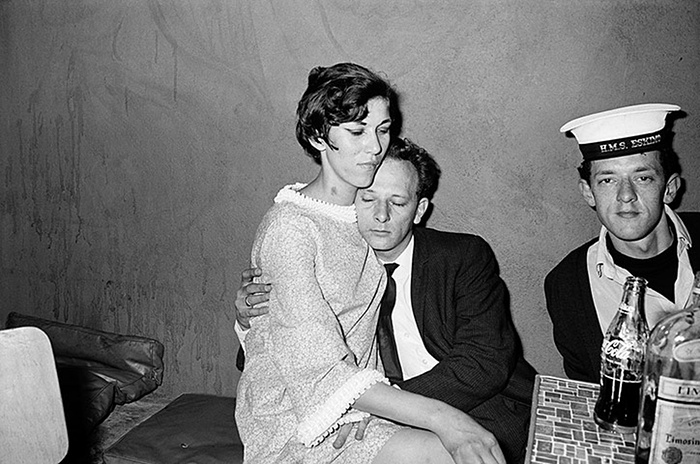Risk, collaboration and collapse in post-TRC narrative.
The Eleventh International Conference for Literary Journalism Studies
‘Literary Journalism: Telling the Untold Stories’. Pontificia Universidade Catolica do Rio Grande so Sul. Porto Alegre, Brazil, 19-21 May 2016.
While the first decade of post-apartheid South African literary production saw a range of works which responded with journalistic and impressionistic immediacy to the proceedings of the Truth and Reconciliation Commission, the second decade of democracy has been marked by a wave of what might be called post-TRC texts: more distant and recessed forms of accounting for the ‘unfinished business’ of the transition. This piece explores a series of texts that grapple with questions of betrayal and collaboration in the varied and complex senses of those words.
Read More
![About a Mountain]()
Fragments from a walking residency across the Cape Peninsula.
Three images from our walking residency, 6-12 December 2015. The first is the official prompt for this exercise (me and Meghna at Smitswinkel Camp). The second is one I asked Barry to take for me (a brass dial, or is it a toposcope, at Cape Point). The third (me giving a talk on Dias, Da Gama and the Khoikhoi in the shade of a windskerm at Buffels Bay) is one he sent me because I wanted photographic evidence of scholarly pursuits.
So, five quick impressions…
1) The minimalist, slightly spartan décor of the camps. Slats of wood and stone; no cushions. Rigorous, good for reading and writing, not for reclining. The limited colour scheme, shrubs deformed by wind, a landscape always on the verge of mourning. Meghna and I both seem withdrawn, inward, even a little sombre. Why? Perhaps because we have both stayed here before, and we know about the tent flaps that will keep us awake all night, flapping in the permanent wind. Or perhaps we have already spent a night here, and have, like Kafka’s Gregor Samsa, awoken from uneasy dreams…
Read More
![Visions of Tsafendas]()
Unparliamentary behaviour, now and then.
This is just a glimpse of my Experiences in an Abnormal World. I intend writing a Book if I ever have the opportunity, but medical attention is what I need at present.
Demetrios Tsafendas, Letter from Pretoria Central.
Early version, 'Parliament of Fouls', in the Sunday Times, 18 January 2015.
I am sitting in the National Library, ordering up back issues of the Sunday Times, trying to find a particular paragraph which describes just how dysfunctional parliament became during the 20th year of South African democracy. There were many accounts of the chaotic sessions in the National Assembly just beyond the trees of Government Avenue; but I remembered this one in particular for the attention it paid to the physical gestures made by MPs as they baited each other in front of a public that was by turns amused and appalled.
Traced back to its root, the word ‘Parliament’ means speaking. The Old French source is preserved in the Afrikaans spelling on signs in Cape Town’s Company Gardens: Parlement. But in South Africa, 2014 was the year of ‘unparliamentary language’...It began with a brilliantly effective piece of political theatre: new political party the Economic Freedom Fighters being sworn in while wearing red labourers’ overalls (men) and red domestic worker aprons (women). Since then the EFF have set about jamming the language of the National Assembly in all registers, with little patience for verbal formulae and niceties inherited from abroad.
Read More
![Thief and Dispatcher]()
Review of Teju Cole, Every Day is for the Thief and Mark Gevisser, Dispatcher.
New Statesman, 13-19 June, 2014.
Lagos and Johannesburg: the two big, bad economic powerhouses of the African continent, neck and neck at the top of the GDP charts. Every Day Is for the Thief by Teju Cole andDispatcher by Mark Gevisser are meditations on each city, respectively: one slim and spare; one garrulous and superabundant. Both are eagerly awaited follow-ups to highly acclaimed works, and each must face the challenges created by second-album syndrome.
Thief reads as a deliberately minor afterword to the literary hit of Open City (like Kid A after OK Computer) – but this Faber edition is in fact a remastered version of a book first published in 2007 by Cassava Press, the Nigerian imprint. That same year brought Gevisser’s monumental biography of the then South African president, Thabo Mbeki, The Dream Deferred. His Joburg memoir, Dispatcher, takes the other option for follow-up albums: the hyper-ambitious, super-produced, everything-and-the-kitchen-sink approach. Yet these two city books are linked by an inquiry into the mysterious ways in which the spaces of our early lives come to structure imagination, creativity, the self – and what happens when these primal attachments must weather disaffection, estrangement and violence.
Read More



